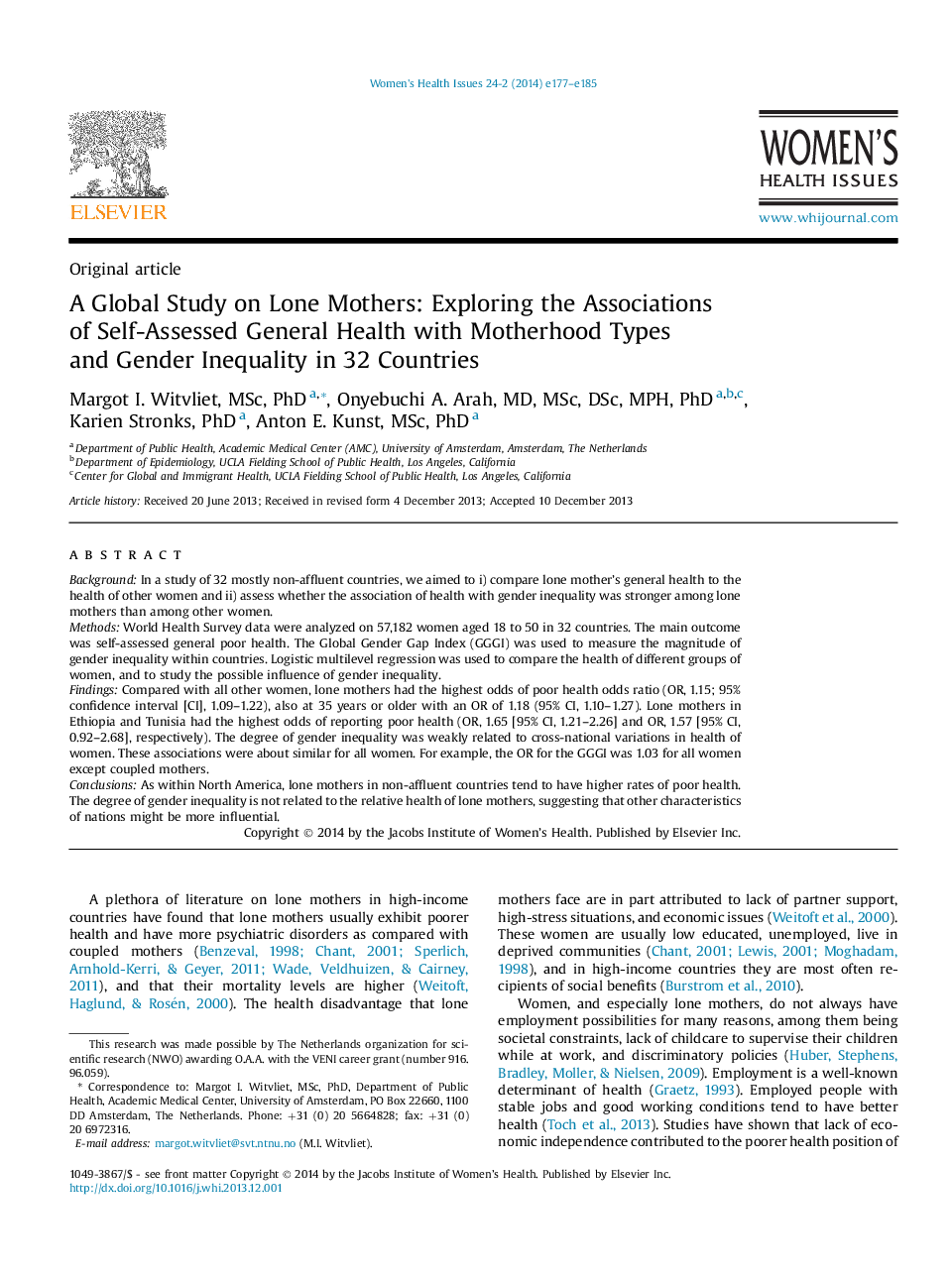| کد مقاله | کد نشریه | سال انتشار | مقاله انگلیسی | نسخه تمام متن |
|---|---|---|---|---|
| 1093062 | 952362 | 2014 | 9 صفحه PDF | دانلود رایگان |
BackgroundIn a study of 32 mostly non-affluent countries, we aimed to i) compare lone mother's general health to the health of other women and ii) assess whether the association of health with gender inequality was stronger among lone mothers than among other women.MethodsWorld Health Survey data were analyzed on 57,182 women aged 18 to 50 in 32 countries. The main outcome was self-assessed general poor health. The Global Gender Gap Index (GGGI) was used to measure the magnitude of gender inequality within countries. Logistic multilevel regression was used to compare the health of different groups of women, and to study the possible influence of gender inequality.FindingsCompared with all other women, lone mothers had the highest odds of poor health odds ratio (OR, 1.15; 95% confidence interval [CI], 1.09–1.22), also at 35 years or older with an OR of 1.18 (95% CI, 1.10–1.27). Lone mothers in Ethiopia and Tunisia had the highest odds of reporting poor health (OR, 1.65 [95% CI, 1.21–2.26] and OR, 1.57 [95% CI, 0.92–2.68], respectively). The degree of gender inequality was weakly related to cross-national variations in health of women. These associations were about similar for all women. For example, the OR for the GGGI was 1.03 for all women except coupled mothers.ConclusionsAs within North America, lone mothers in non-affluent countries tend to have higher rates of poor health. The degree of gender inequality is not related to the relative health of lone mothers, suggesting that other characteristics of nations might be more influential.
Journal: Women's Health Issues - Volume 24, Issue 2, March–April 2014, Pages e177–e185
